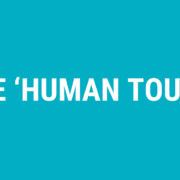5 Reasons Nobody Will Hire You In Sales (And What To Do About It)
In this article, we’ll breakdown 5 deadly job search mistakes that will ultimately cost you getting hired as a salesperson, followed by what you should do instead.
Sales is a difficult industry to survive in. But it’s an industry so many people want to get into due to the huge rewards it offers, both financially and long-term career-wise. This makes it even more important to land the right job with the right company, so you can get the right training and experience to achieve your goals.
5 Costly Job Search Mistakes, Commonly Made By Salespeople
In many cases, there’s no shortage of job vacancies or positions available. In San Francisco alone, where all the hot SaaS startups and tech companies are hiring like crazy, there are more than 1000 unfulfilled SDR (sales development representative) opportunities.
And yet, many job candidates continue to struggle to land a sales job, often for the following reasons:
- Targeting the wrong industry.
- Targeting the wrong roles based on your skills.
- Aiming too high.
- Bad location, or conflict of commitments outside of work.
- Your method of reaching out to potential employers stinks.
So… here’s how to tackle each issue.
1. Targeting the wrong industry
Think carefully about what topics you could work on that would make you want to work hard and put in the time without any complaint. If you’re a sports enthusiast, maybe your sector should be sports companies or targeting sports companies.
Imagine the sales conversations, problems and goals you want to speak about for your salary. Could you work every day talking about medical devices if you don’t care about that sector at all? You probably could, but your employer probably won’t see your raving conviction to the cause and industry they focus upon.
The solution: sell what you love.
People lacking specific industry knowledge often get jobs within a new sector, but it helps a lot when you’re able to draw on your passion and knowledge for a particular vertical during interviews and sales conversations. Genuinely being able to reference your 20 years of supporting a specific team or following X sport, or X topic, will provide a strong foundation for future conversations you’ll have in a new role and demonstrate to your new employer that your on-boarding time will most likely be fast and painless.
2. Choosing the wrong sales role
There are many different types of sales roles. From the lower levels, sales/business development is a very common first role for people starting a sales career. It’s a good place to begin to learn the industry, put in your time, and hone your craft.
But that’s not for everyone. Sales Operations is another common route for getting into sales. You might come from a product background, or a business operations background. It’s great for learning what you need to uncover and find out about your prospects, how to personalize messaging and be super-targeted in your outreach. That is the route to real sales success, so being in the support line to give a fellow sales rep actionable intelligence is a good way to build your personalization muscles.
Evaluate your skills and interests. Are you a person who loves to research, takes their time with things and is thorough? Sales Enablement may be the right path for you, rather than sales development, which is much more vigorous.
But…
If you’re super-driven and let nothing stand in your way (time, effort, and rejection included), then sales development is your starting spot.
3. Aiming too high
If you don’t want to work in a job where burnout is an oft-discussed topic, and you already bring some sales experience to the table, you may want to aim for a higher-tier position, such as an Account Executive (AE).
However, that doesn’t mean you should apply to be an AE immediately. Many companies have built out their SDR to AE progression plans and will actively help you through it.
If you’re still at an entry level, take some classes or read a few essential sales books to jump you up to speed.
It’s fair to start at the bottom and work your way up. In the end, this gives you greater experience and a broader background when applying for senior sales positions. You can reference your time “in the weeds” and it shows further progression than jumping across management positions.
4. Bad location, or have too many conflicts of commitment outside of work.
Many candidates don’t consider that what happens outside of work is equally important. It’s different for everyone, but we all have circumstances and situations to work around.
If you live very far away from any considerable towns or cities, you may find it hard to land an SDR role. Companies will want you in-house for these roles. They’re able to meet with you easier, train you ad-hoc, involve you in team activities and rewards easier. Remote teams exist – but they generally exist as teams in a specific location – not from home.
Equally, if you need to leave the office at 3 until 7 for family commitments, it’s going to be difficult for an employer to choose you over a person ready to work as many hours as they can and want. Sadly, that’s the logic of businesses and they must hire who’s best for them, so you need to look at any circumstances that blocks or influences your ability to become a sales professional.
5. Your method of reaching out to potential employers stinks.
It’s common for burgeoning sales talent to win over their preferred employers by using “sales outreach” to gain the attention and time with the team leader.
Show that you are a creative, attention-winning prospector by prospecting your way into an interview. Do it with class, and don’t come off as desperate.
Have your potential employer want to understand more about what you will bring to the table. Check out the team on LinkedIn, and watch out for their LinkedIn headlines. They often say they’re hiring, so that’s a good reference to mention – it shows you did your research (sales people love to know you did that!).










